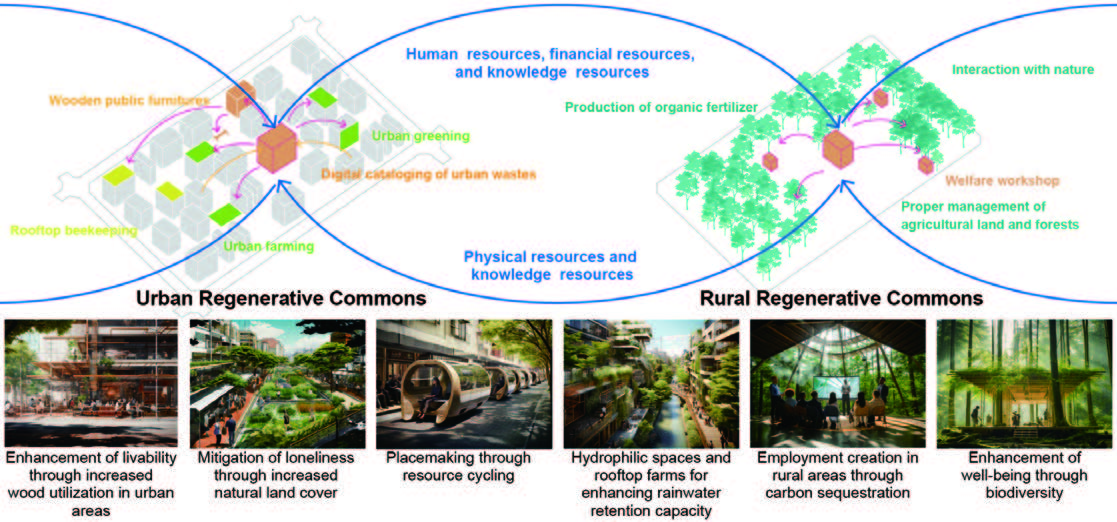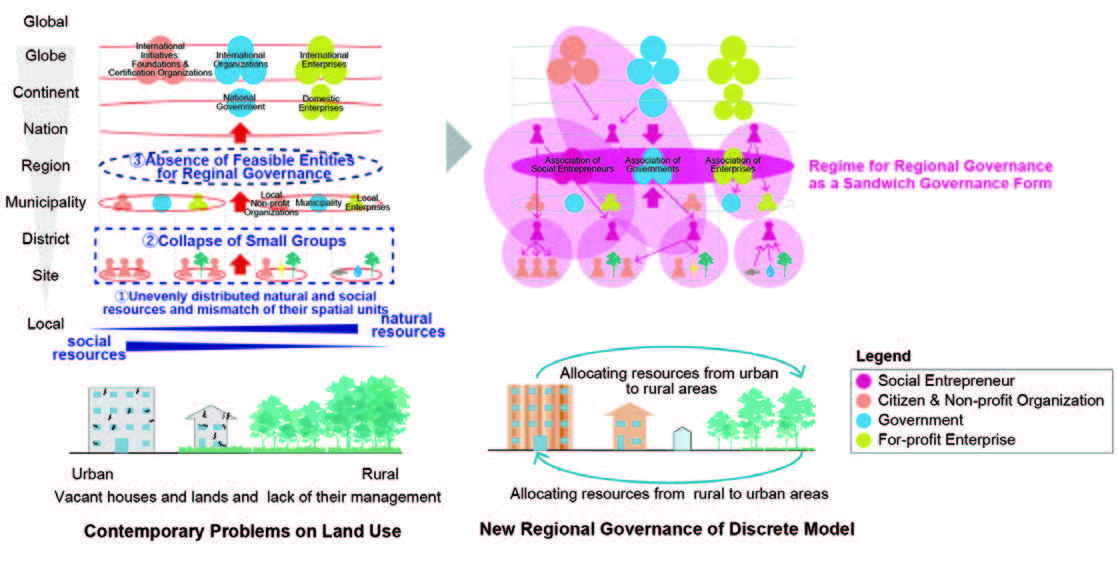
Fisical Year Completed
2024
[FS]Discrete Governance for Regenerative Commons
[FS]Discrete Governance for Regenerative Commons
Abstract
We believe one reason global environmental issues remain unresolved is that they are not closely linked with activities that improve daily life. In recent years, there has been a trend of activities aiming to address both local and global issues through placemaking. Within this trend, people from multiple regions, not necessarily contiguous, come together or collaborate flexibly even when geographically separated. In this study, we integrate practice and research to establish sustainable and effective mechanisms for these emerging initiatives.
Why do this research?
Communities are facing the challenge of adapting to social changes such as population decline, aging populations, infrastructure deterioration, and dual-income households, in addition to global environmental issues like climate change. These social changes directly affect daily life and work, posing urgent challenges for individuals and communities. On the other hand, while global environmental issues such as extreme weather events and flooding have become more palpable in daily life, they may still be perceived as less immediate concerns.
In recent years, there has been a trend of activities aiming to regenerate communities and natural ecosystems through placemaking, while simultaneously addressing both local and global issues (Figure 1). Within these initiatives, people from multiple regions, not necessarily contiguous, come together or collaborate flexibly even when geographically separated. This can be seen as a new way of reconsidering existing vulnerable community structures.
Furthermore, through collaboration across multiple regions, these initiatives can help address depopulation in rural areas facing a shortage of workers and increase opportunities for interaction with nature in urban areas. They also contribute to reconstructing the relationship between urban and rural areas by promoting resource circulation.
If diverse stakeholders such as governments, municipalities, private companies, and citizens can establish mechanisms for sustained collaboration, we believe these initiatives have the potential to become effective approaches to regional governance for resolving global environmental issues (Figure 2).
Results
What you want to do
n this study, we aim to collaborate with practitioners leading these new initiatives to systematically develop effective regional governance methods. Resolving both local and global issues simultaneously may not always be straightforward. As we advance in practice, we will identify combinations of issues that generate synergistic effects and those that produce conflicting effects. We will also develop evaluation methods to assess these combinations. Additionally, under this evaluation framework, we will explore mechanisms to address conflicts of interest when they arise. Furthermore, we will build a digital platform to ensure continuity for fluid communities that come together and leave. Based on this kind of transdisciplinary research, we will present new concept of communities and new ways of creating relationships between urban and rural areas.
News
-
{{ data.disp_date }}
{{ data.content }}
Project Leader
NAKAJIMA Hiroki
Research schedule
| 2024 |
|---|
| FS |

